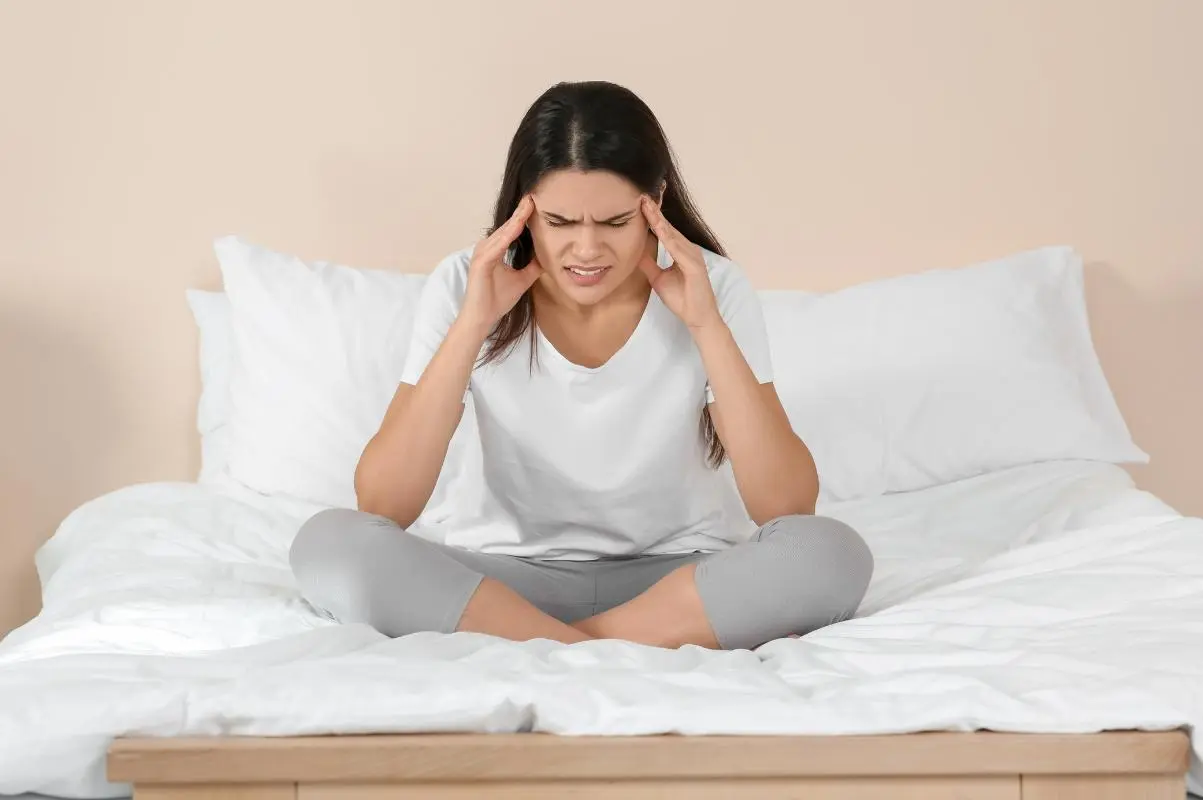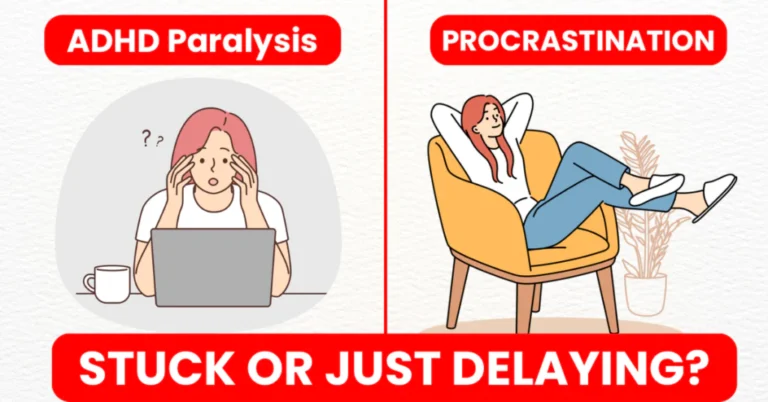How Poor Sleep Wrecks Your Hormones (5 Amazing Ways to Fix It)
There is much more to sleep deprivation than just feeling drowsy the next day, despite what you may believe. Your hormones are ruined by inadequate sleep, which affects mood, appetite, metabolism, stress response, and even reproductive health. This post will outline the precise effects of sleep deprivation on your hormones and offer five quick, all-natural solutions to help you feel more balanced, alert, and invigorated.
How Poor Sleep Wrecks Your Hormones: The Science Behind It
Your body uses hormones as chemical messengers, and one of the most crucial times to balance them is while you sleep. Your body finds it difficult to maintain important hormonal functions when you don’t get enough sleep, which can result in anything from anxiety to weight gain.
1. Cortisol – The Stress Hormone That Won’t Quit
Sleep deprivation causes cortisol levels to stay elevated. This can lead to:
- Increase in belly fat
- Lower immune function
- Make you feel anxious and irritable
Chronic stress + poor sleep = a hormonal double trouble, it is important to keep your cortisol
2. Insulin – Blood Sugar Rollercoaster
Poor sleep impairs insulin sensitivity, making it harder for your cells to use glucose. This can lead to:
- Increased sugar cravings
- Weight gain (especially around the midsection)
- Higher risk of type 2 diabetes
3. Ghrelin & Leptin – Hunger Hormones Go Haywire
Sleep loss increases ghrelin (hunger hormone) and decreases leptin (fullness hormone), which means:
- You feel hungrier than usual
- You’re more likely to overeat
- Cravings for high-calorie foods increase
4. Melatonin – Your Sleep Signal
Melatonin plays a crucial role in regulating both falling and maintaining sleep. However, irregular sleep patterns or excessive exposure to screens in the evening can disrupt melatonin production, worsening the sleep problem. -5. Reproductive Hormones: Mood, Libido, and Fertility
Sleep significantly impacts the levels of estrogen, progesterone, and testosterone, which play crucial roles in regulating mood, libido, and fertility. Consequently, inadequate sleep can lead to various adverse effects.
- Irregular periods
- Lower sex drive
- Mood swings or anxiety
5 Ways to Fix Hormonal Imbalance
The good news is that your body is strong. You can quickly improve your sleep and naturally rebalance your hormones by making the appropriate adjustments. These five tactics are straightforward, successful, and supported by research.
1. Create a Hormone-Friendly Sleep Routine
Your body craves consistency. Going to bed and waking up at the same time every day helps regulate your circadian rhythm which controls hormone release. Try this:
- Aim for 7–9 hours of sleep nightly
- Stick to the same schedule even on weekends
- Wind down with dim lights, no screens, and light stretching
2. Eat to Support Hormone Balance
What you eat during the day affects how well you sleep at night and vice versa. Try to Focus your diet on:
- Magnesium-rich foods (spinach, almonds, pumpkin seeds)
- Healthy fats (avocados, olive oil, wild salmon)
- Complex carbs at dinner (quinoa, sweet potatoes) to support melatonin
Avoid caffeine after 2 p.m. and reduce sugar, which spikes cortisol and insulin.
3. Reduce Blue Light Exposure at Night
Blue light from phones, tablets, and TVs suppresses melatonin—the hormone that makes you sleepy. Here are some Easy fixes:
- Use blue light blockers on screens or wear blue light glasses
- Switch to warm, amber lighting at night
- Avoid screens at least one hour before bed
Apps like f.lux or phone night modes can help too.
4. Support Your Body with Adaptogens
Adaptogenic herbs help regulate your body’s response to stress, which in turn supports hormonal balance. Here are some Top choices:
- Rhodiola – reduces fatigue and boosts focus
- Holy Basil (Tulsi) – helps manage anxiety and blood sugar
These can be taken as teas, capsules, or tinctures but always consult your GP first, especially if you’re on medication. Learn more about adaptogens from Healthline
5. Move Your Body But Don’t Overdo It
Exercise helps regulate insulin, cortisol, and even melatonin. But too much high-intensity training can backfire by increasing stress hormones.
Best options for hormonal health:
- Walking or light cardio (30 mins daily)
- Yoga or Pilates
- Resistance training 2–3x per week
Avoid intense late-night workouts, which can disrupt sleep.
Conclusion
Lack of sleep may be the main reason if you’ve been feeling “off” lately tired, irritable, having trouble controlling your weight, or having trouble focusing. As we’ve discussed, getting too little sleep disrupts your hormones, which has an impact on every part of your body. The good news? Fixing your bedtime routine, eating foods that support hormones, and managing stress are just a few small, regular lifestyle changes that can have a big impact on your sleep and overall well-being. Your hormones are paying attention. The time to help them is now.
Check out the healthlynic ✔️approved range of products for Weight Loss, Improve metabolism and much more!







